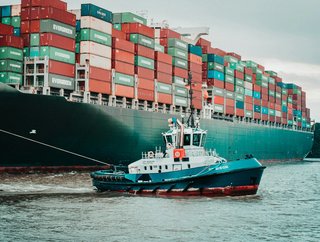KPMG and ASCM Unveil Latest Supply Chain Stability Index

The KPMG Supply Chain Stability Index, produced in collaboration with the Association for Supply Chain Management (ASCM), is designed to help supply chain professionals understand the stability of US operations.
It also acts as a barometer for the global supply chain community.
Unveiling the Supply Chain Stability Index for 2023, KPMG states four factors were considered in the latest report, as follows:
- Overall volume of goods shipped
- Speed at which goods reach their destination
- Cost of transporting goods from the source to the ultimate destination
- Variability of these factors
KPMG: Global supply chain remains fragile
Authors of the Supply Chain Stability Index say 2023 saw "tremendous improvement and increased supply chain stability overall", but adds that several variables are "still driving continued fragility".
Suggestions of nearing a return to pre-pandemic normality over the next 12 months are largely dismissed, with factors such as cross-border patrol closures between US and Mexico trade corridors – as well as conflict in the Middle East leading to attacks on commercial ships in the Red Sea – highlighted as adding to recent instability.
However, there remain reasons to be positive, such as greater nearshoring efforts in Mexico and Canada, reducing reliance on other regions.
"While supply chain challenges do persist, the overall return to increased levels of stability is a testament to the incredible efforts of countless supply chain professionals,” comments Abe Eshkenazi, CEO at ASCM.
“The index continues to confirm that people make all the difference. We must continue cultivating supply chain talent to mitigate disruptions, build resiliency and drive growth.”
Jim Lee, Supply Chain AI Leader at KPMG, adds: “Even though the Supply Chain Stability Index shows a reduction in operations instability throughout the year, there are still challenges such as cross-border patrol closures and conflicts leading to commercial ship attacks.
"While a complete return to pre-pandemic normality in 2024 is unlikely, there are positive developments such as the comeback of just-in-time inventory strategies and a slight easing of competition for talent in the labour market. However, the logistics sector still faces significant challenges due to geopolitical factors and volume fluctuations. It is important for supply chains to remain vigilant and adopt resilient strategies for continued progress.”
Supply chain challenges persist
In their index, ASCM and KPMG also highlight some key themes for companies to be aware of, including:
- Inventory optimisation: Inventory levels, inflated during the pandemic, are now strategically decreasing throughout the supply chain, indicating a shift toward optimised inventory management. Purposeful efforts across all nodes in the supply chain are leading to improvements in inventory.
- Automation and the future of labour: The competition for talent, notably for entry-level roles across the entire supply chain, persists, albeit with a slight alleviation from previous intensity. Lower unemployment rates and increased automation adoption are key factors contributing to this evolving trend.
- Ongoing logistics challenges: Geopolitical tensions persist, disrupting the global movement of goods, notably impacting ocean freight, especially between Asia and the EU and, to a lesser degree, the US. These factors underscore ongoing residual risks within the sector.
Douglas Kent, Executive Vice President of Strategy and Alliances at ASCM, says: "As we navigate the complexities of modern supply chains, having actionable insights is paramount. This index helps shed light on risks that remain as well as areas of progression. For example, we’re now seeing just-in-time inventory strategies making a comeback and the competitive talent market beginning to ease, thanks to the effective use of technology.
“We must continue to leverage data to monitor and adapt to the complex and ever-evolving supply chain landscape.”
******
Check out the latest edition of Supply Chain Magazine and sign up to our global conference series – Procurement and SupplyChain LIVE 2024.
******
Supply Chain Digital is a BizClik brand.






